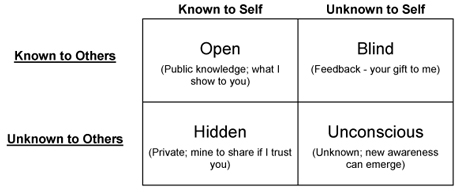Frustrating List of Values
If you haven’t read the post Don’t Fuck Up the Culture by Brian Chesky (Founder & CEO of Airbnb) you should. It summarises the importance and power of culture in an organisation.
Culture is the foundation of a company.
Brian also recommends to build a culture “by upholding our core values in everything we do.” There are multitudes of ways to do this. A popular way is to create a list of values.
In this post I’m going to write about the potential destructive effects of having a list of values. I will also propose a different and in my opinion better way to describe a culture and its actual values.
List of Values
Most companies have a list of values somewhere. Both small and large ones. You can search the name of the company plus add the words “core values” and you will get a list of them if they are communicated publicly. Here you can find some: Google, PwC, Zappos, Prezi, Facebook, Amazon. While they make me smile I find them interesting to read.
Of course it wasn’t always like this. During university I worked for larger organisations. They all had their lists. Often these were the decorations on the walls. In reality nobody really talked and cared about them. Only some people remembered them. Of course there was the standard HR onboarding for new hires and we got the list, kind of explained in a maximum one hour session. To be honest I considered them bullshit. They were so far away from the daily job. Often people sarcastically laughed when they compared real deeds with these “guidelines”. Only a few embraced them.
I worked for small companies too. They had their list of values as well. There I realised that they have a meaning. I realised that there is a real culture behind them. It was fascinating to see that people actually considered these values while they were doing their daily jobs.
(Un)fortunately small organisations grow fast. It’s hard to scale culture. And it’s terribly hard to map this out in a list. These lists can be very frustrating and destructive.
Issues
Today if I read these they make me smile. They try to express a whole culture in a list. It’s like trying explain who you are in ten sentences. It would be pretty inaccurate I think. To make it more clear just the take the Johari window as an example.

Often the ten things you list are in the open zone. But there are other zones as well. I’m sure that the same applies to organisations.
Companies have blind spots, hidden and unconscious zones as well. These zones can contain such values those are not mapped out.
The other issue is that exactly like humans, companies change too. This wouldn’t be a problem alone. But with a list of values explicitly stated this can be painful and frustrating to the employees and thus destructive to the whole organisation.
It all starts in the beginning. A relatively young company (startup) would like to understand its culture. Therefore it creates a list of values which everyone can use internally and sometimes externally. At the moment when these values are listed and explicitly said a status quo is born. People try to adhere to it. This works well until a point. If people start changing or new people join the company they may act differently then before. In these cases the likelihood that some people won’t act exactly according to the original list of values increases. It’s important to see that this doesn’t mean that the actual person is bad or doesn’t fit the culture. It simply means that s/he doesn’t fit the list of values.

This can happen in various situations. For example:
- the culture scales and shifts a little bit so the list of values doesn’t match the culture entirely
- different people interpret the list of values differently
- in a certain situations people don’t act according to one value in the list because they find it contradictory with another value
Any of these cases are ok in my opinion. Since we are humans, we are changing and often we fail. The issue is the most severe in the second situation.
The problem with these is that anytime people in the organisation notice that others don’t adhere to the list they sweep it under the rug and sarcastically make such comments like: “Yeah, of course. Serving our customers is the number one priority.” (A fictional value of a fictional company.) This will result in distrust and distrust leads to a dysfunctional team.
The more rapidly a company grows the bigger the problem gets. In these cases it is extremely important to have continuous debates about the list and update it regularly. It needs a lot of energy and it is often neglected.
Unfortunately if you neglect this it will lead to a rigid organisation where real culture hides itself and doesn’t dare to show up. It can cause frustrations to everyone on every level.
Proposal
A company’s culture is basically what its people do and how they feel about it.
Fortunately there are awesome vehicles those carry these things. These are the stories we all hear and are proud of.
For example a story of an engineer who spoke up not to release a feature because of low quality code and dared to say no to the CEO. Such stories are great and retold thousand times.
If we hear these stories then we can retell them, we can always add new ones to them or even remove some of them if they are not valid anymore.
My point is to not explicitly state the value. The moral and the lesson learned is just felt and understood by reading them. They form the essence of the culture.
There are many ways to tell these stories. An innovative example is that a company can create a comic book that contains all its famous stories. These comic books can be distributed both internally and externally. A new hire can get one and even add a new story to it. There are many ways to tell a good story.
Trust me. People will be more proud of a comic book then a list of values and they will happily retell these stories and act according to the moral of them. And this is what you want. So please, “Don’t Fuck Up the Culture”!
Good luck fellas!
Laz